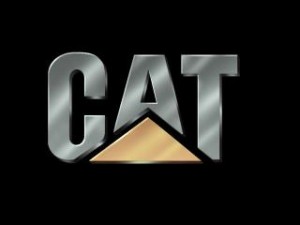Is Caterpillar done for?
 Gloom and doom talk is nothing new when it comes to stocks. We all know that. But when a top hedge fund investor goes all-in against a major company the way that Jim Chanos has against Caterpillar (CAT), you have to at least lend him an ear and consider what he’s saying.
Gloom and doom talk is nothing new when it comes to stocks. We all know that. But when a top hedge fund investor goes all-in against a major company the way that Jim Chanos has against Caterpillar (CAT), you have to at least lend him an ear and consider what he’s saying.
Chanos, the founder of Kynikos Associates, is likely most known for advising investors against Enron before the company’s spectacular collapse. He says Caterpillar is going to be in big trouble, mostly because of an upcoming drop for commodities. “I believe the commodities super-cycle built on the back of the Chinese construction boom is coming to an end,” he told listeners at the CNBC Delivering Alpha conference.
Chanos believes that commodities, which have been historically high in the last two decades, will be coming down hard before long. Furthermore, since Caterpillar derives almost half of their profits from global mining companies, they’ll be in deep trouble before long, he says. Chanos, unlike some others, thinks that the expected tapering off of global mining expenditures will be a steep drop-off instead of a gradual decline.
Furthermore, Chanos has added a fresh criticism on Caterpillar as well, citing some accounting issues that had to do with the way they’ve been recording acquisitions in their books. Not long ago, Caterpillar had to correct a $580 million issue from “accounting misconduct” that had to do with the acquisition of a Chinese mining company last year.
Now, it could be a self-fulfilling prophecy, but Caterpillar was predictably down on Wednesday, dropping by almost 2%. Sure, part of that is just people being scared by what Chanos had to say, but that also means that Chanos’ advice is ringing true in the ears of at least some investors.
Others who have held on nonetheless are likely either counting on stubbornness from other investors or Chanos being wrong, as he was with Hewlett-Packard (HPQ), the target of Chanos’ ire last year at the same conference. Since he predicted troubles for HP, their stock has actually risen dramatically.





